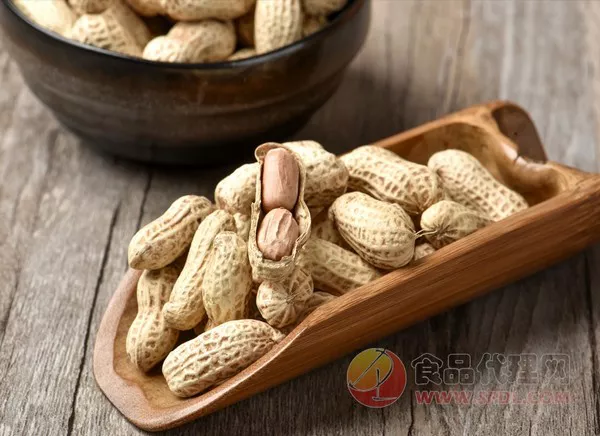For many people, enjoying a handful of peanuts or a spoonful of peanut butter is a satisfying and nutritious snack. However, for some individuals, the simple act of consuming peanuts can trigger a range of uncomfortable and potentially life-threatening symptoms, including coughing. This phenomenon is often indicative of peanut allergy, a condition characterized by an abnormal immune response to proteins found in peanuts. In this comprehensive article, we delve into the science behind peanut allergy, explore the mechanisms that lead to coughing when eating peanuts, and discuss strategies for managing this challenging condition.
1. Peanut Allergy: An Overview
Peanut allergy is one of the most common food allergies, affecting millions of individuals worldwide. It occurs when the body’s immune system mistakenly identifies peanut proteins as harmful invaders and mounts an immune response to neutralize them. This immune response triggers the release of various chemicals, including histamine, which can lead to a range of symptoms affecting the skin, respiratory system, gastrointestinal tract, and cardiovascular system. While peanut allergy can manifest at any age, it often develops in childhood and persists into adulthood, posing significant challenges for affected individuals and their families.
2. Respiratory Symptoms of Peanut Allergy
Coughing is one of the respiratory symptoms commonly associated with peanut allergy. When individuals with peanut allergy ingest peanuts or peanut-containing products, exposure to peanut proteins can trigger inflammation and irritation of the respiratory tract, leading to coughing. Other respiratory symptoms may include:
Wheezing: A high-pitched whistling sound produced during breathing, often indicative of narrowed airways and airway obstruction.
Shortness of breath: Difficulty breathing or feeling as though one cannot get enough air, which can be distressing and alarming.
Throat tightness: A sensation of tightness or constriction in the throat, making it difficult to swallow or breathe comfortably.
These respiratory symptoms can range from mild to severe and may progress rapidly, requiring prompt medical attention to prevent complications such as anaphylaxis.
3. Mechanisms Behind Coughing in Peanut Allergy
The mechanisms underlying coughing in peanut allergy are complex and involve both immune-mediated and non-immune-mediated processes. When individuals with peanut allergy consume peanuts or peanut-derived products, exposure to peanut proteins triggers the release of inflammatory mediators such as histamine, leukotrienes, and prostaglandins. These inflammatory mediators cause vasodilation, increased vascular permeability, smooth muscle contraction, and mucus secretion, leading to airway inflammation, bronchoconstriction, and coughing.
Additionally, peanut proteins may directly stimulate sensory nerve endings in the respiratory tract, triggering cough reflexes and respiratory symptoms. The presence of peanut proteins in the airway can activate sensory nerve fibers, leading to coughing and other respiratory manifestations of peanut allergy. Furthermore, individuals with peanut allergy may experience a heightened sensitivity to environmental allergens, pollutants, or irritants, which can exacerbate respiratory symptoms and contribute to coughing when exposed to peanuts.
4. Diagnosis of Peanut Allergy
Diagnosing peanut allergy typically involves a combination of medical history, physical examination, allergy testing, and food challenge tests. Healthcare providers may inquire about symptoms experienced after peanut exposure, including coughing, wheezing, hives, abdominal pain, or anaphylaxis. Allergy testing, such as skin prick tests or blood tests for peanut-specific IgE antibodies, can help identify sensitization to peanut proteins. In some cases, oral food challenges may be performed under medical supervision to confirm the diagnosis of peanut allergy and assess the severity of allergic reactions.
5. Management of Peanut Allergy
Managing peanut allergy requires strict avoidance of peanuts and peanut-derived products to prevent allergic reactions. Individuals with peanut allergy should carefully read food labels, inquire about ingredients in restaurant meals, and avoid cross-contact with peanuts during food preparation and handling. In addition to avoidance measures, healthcare providers may prescribe emergency medications such as epinephrine auto-injectors (e.g., EpiPen) for the treatment of severe allergic reactions, including anaphylaxis. Education and awareness are essential for individuals with peanut allergy and their caregivers to recognize early signs of allergic reactions and take prompt action when needed.
6. Emerging Therapies for Peanut Allergy
Research into potential treatments for peanut allergy is ongoing, with several promising therapies currently under investigation. One approach involves oral immunotherapy (OIT), in which individuals with peanut allergy gradually consume increasing doses of peanut protein under medical supervision to desensitize the immune system and reduce allergic reactions. Another approach is sublingual immunotherapy (SLIT), which involves administering small amounts of peanut protein under the tongue to induce immune tolerance. While these therapies show potential for reducing allergic reactions to peanuts, they carry risks of adverse reactions and require careful monitoring by healthcare providers.
7. Psychological Impact of Peanut Allergy
Living with peanut allergy can have a significant psychological impact on affected individuals and their families. The constant vigilance required to avoid peanuts, fear of accidental exposure, and social limitations can lead to anxiety, stress, and feelings of isolation. Children with peanut allergy may face challenges in social settings, such as birthday parties, school events, and dining out, which can affect their self-esteem and quality of life. Education, support, and open communication are essential for addressing the emotional and psychological aspects of living with peanut allergy and promoting resilience and coping strategies.
Conclusion
Coughing when eating peanuts is a common symptom of peanut allergy, a potentially serious and life-threatening condition characterized by an abnormal immune response to peanut proteins. Understanding the mechanisms underlying coughing in peanut allergy, along with effective diagnosis and management strategies, is crucial for individuals with peanut allergy and their caregivers. By raising awareness, promoting education, and advancing research into treatments for peanut allergy, we can improve the quality of life and outcomes for those affected by this challenging condition.
[inline_related_posts title=”You Might Be Interested In” title_align=”left” style=”list” number=”6″ align=”none” ids=”9258,9254,9250″ by=”categories” orderby=”rand” order=”DESC” hide_thumb=”no” thumb_right=”no” views=”no” date=”yes” grid_columns=”2″ post_type=”” tax=””]

































